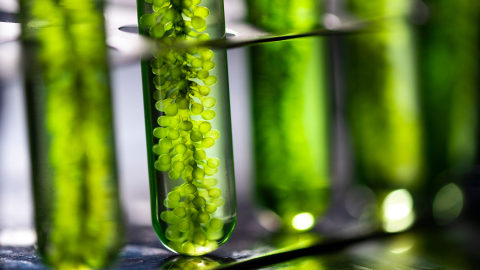
Researchers at Binghamton University have designed a biosolar cell that generates electricity using two types of bacteria: one is photosynthetic and the other uses the nutrients it creates. This symbiotic relationship can provide a four-day power supply, unlike current biofuel cells that last for only a few hours.
“This system is a practical, self-sustainable power supply for applications, which other small-scale microbial fuel cells so far have not been able to supply,” Seokheun (Sean) Choi, an associate professor in the Electrical and Computer Engineering department and a director of the Center for Research in Advanced Sensing Technologies & Environmental Sustainability (CREATES), said. “The device combines all up-to-date techniques produced by our group for more practical applications, including a solid-state microfluidic fuel cell technique, a synergistic co-culture system and a gas-permeable bio-solar system, significantly contributing to the autonomy of the resulting biopower system.”
The team sees potential for using this new bio-solar power cell with the internet of disposable things (IoDT) and to power longer-term environmental IoT sensing applications.
“Conventional battery technologies have become less practical because of their limited lifetime and environmentally hazardous components,” Choi said. “Also, battery replacement will be very costly and infeasible for more remote areas. To enable relatively long-lasting operation without environmental issues, energy harvesting from renewable sources will play a key role in future IoT technology.”
“A miniaturized, self-sustaining and integrable bio-solar power system” will be published in the journal Nano Energy in June of this year. The research has been supported by the Office of Naval Research (Microbial Electrochemical Systems Program).
